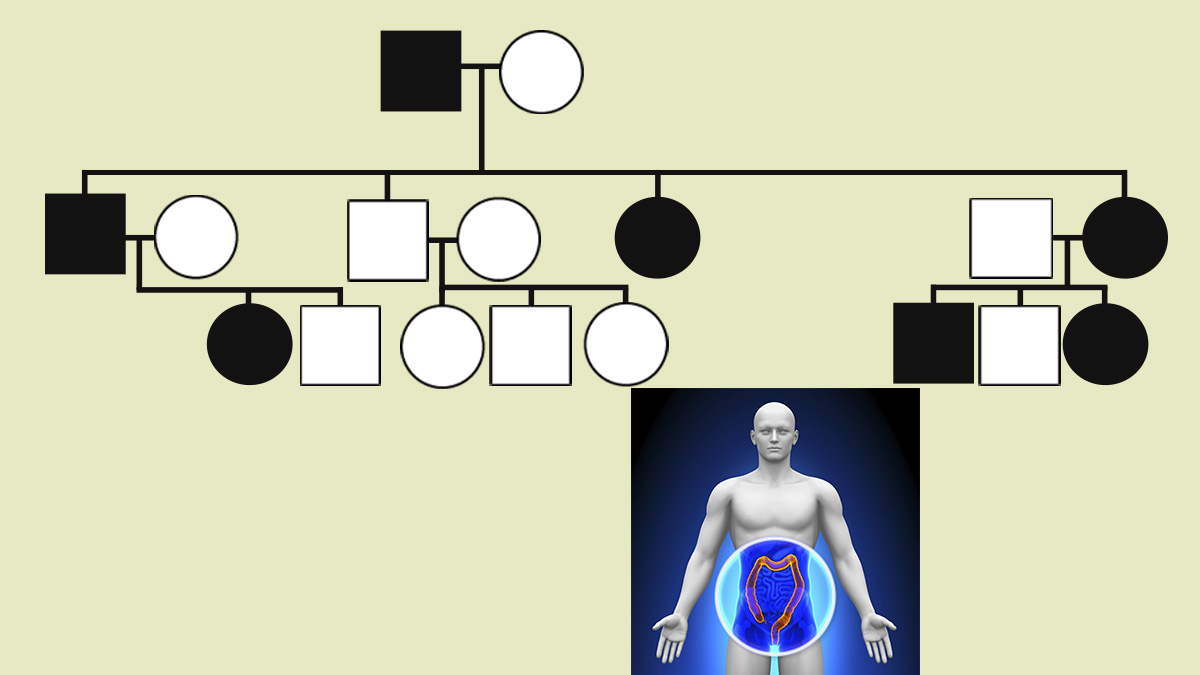Key points
- If you have been diagnosed with Lynch syndrome, your family members could also have it. Like you, they are more likely to get colorectal (colon), uterine (endometrial), ovarian, and other cancers.
- Cascade testing can find family members who have the same genetic change you have.

Overview
Cascade testing for Lynch syndrome can find family members who are more likely to get colorectal (colon), uterine (endometrial), ovarian, and other cancers. Knowing about their increased risk allows family members to take steps to prevent these cancers or find them early when treatments are more likely to be successful.
How it works
If you have been diagnosed with Lynch syndrome, your family members could also have it. Family members who decide to get genetic testing for Lynch syndrome should be checked for the same genetic change you have. Getting screened using a cancer test available for a variety of cancers might not include the genetic change that you have, so family members should talk to their doctors about making sure that their test includes your genetic change.
Ask your genetic counselor or other healthcare provider if the company that did your genetic testing offers free or discounted genetic testing to your at-risk family members. In some cases, free or discounted testing is only available for a limited amount of time after your initial test.
Current recommendations state that colorectal (colon) and some uterine (endometrial) tumors should be tested for Lynch syndrome. However, most people who get colorectal (colon) or uterine (endometrial) cancer do not have Lynch syndrome, so having a family member with these cancers does not necessarily mean that cascade testing is needed. A genetic counselor can help you decide if genetic testing is recommended.
Common questions
What are my family members’ chances of having Lynch syndrome?
- Your mother, father, children, and siblings have a 1 in 2 (50%) chance of having Lynch syndrome.
- Your half-siblings, aunts, uncles, grandmothers, and grandfathers have a 1 in 4 (25%) chance of having Lynch syndrome.
- Your cousins and other more distantly related family members can have as much as a 1 in 8 (12.5%) chance of having Lynch syndrome.
A healthcare provider, such as a genetic counselor, can help with personalized risk estimates for each person in your family.
Who should get tested?
When possible, genetic testing should start with family members who are most closely related to the person diagnosed with Lynch syndrome. However, if a family member is not available for testing (for example, the family member does not want to be tested or has died), testing can start with more distant family members.
Because interventions for Lynch syndrome start in adulthood, most current guidelines recommend that testing for Lynch syndrome should only be done on adults (18 years of age and older). This allows children, rather than their parents, to make their own decision about genetic testing once they become adults. Talk to your genetic counselor or other healthcare provider about how to provide information to your children so they are empowered to make their own decision about genetic testing when the time is right.
How do family members get tested?
The genetic counselor or healthcare provider who diagnosed you might be able to help schedule genetic counseling and testing for your family members. Provide your genetic test report to any genetic counselor or healthcare provider who orders testing for your family. If free or discounted cascade testing for family members is limited to a certain amount of time from the first genetic test report, they might need a copy of your report to show the date of your test. Some insurance companies will cover genetic testing for families if a known genetic change is found. A genetic counselor or healthcare provider can give more information on coverage with your specific insurance.